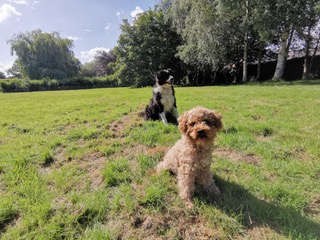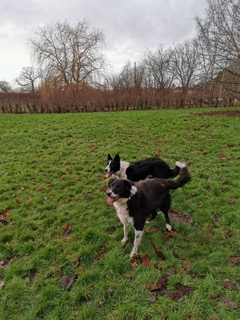Cheshire Autism Diagnostic Service
At the Cheshire Autism Diagnostic Service we assess children and adults who present with a suspected autism spectrum disorder
What is an Autism Spectrum Disorder?
Autism Spectrum disorder is referred to as autism. It is a neurodevelopmental condition that occurs in approximately 1-1.5% of the population.
Autism can affect a someone’s ability to understand, communicate, and interact with their peers and adults. In addition to these social communication difficulties, autistic people exhibit repetitive actions restricted, repetitive patterns of activities, interests and behaviours which can impact their day to day functioning.
Autism is often diagnosed in early childhood but it is not uncommon for it to remain undetected until the teenage years or even adulthood when the person’s difficulties or differences become more apparent.
Who We Are
The Cheshire Autism Diagnostic Service is run by Mrs. Gillian Benson (Consultant Speech and Language Therapist) and Dr. Siobhan O’Hagan (Educational Psychologist). Gillian has over 28 years experience in developing and running autism diagnostic services in the NHS and independent sector.
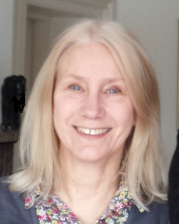
Mrs. Benson Cert.MRCSLT, qualified as a speech and language therapist in 1982 and is HCPC Registered.
Since 1987 she has worked as a clinical specialist with children and adolescents who have autism, including over 20 years experience working in an NAS accredited school.
She has worked as national advisor for the Royal College of Speech and Language Therapists.
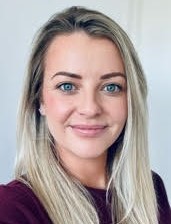
Dr. O’Hagan, BA (Hons), MEd, D.Ed.Ch.Psychol, CPsychol qualified from The University of Manchester in Educational and Child Psychology in 2020 and is an HCPC Registered Practitioner Psychologist.
Dr. O’Hagan works both within local authority and private practice in Cheshire.
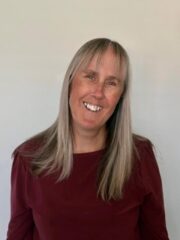
Mrs Kerry Arnison qualified as an occupational therapist in 1995, and later worked as an advanced practitioner and autism clinical specialist. She is HCPC registered.
Kerry has over 30 years of experience working for the NHS in the field of autism and has lived experience of autism and neurodivergence through her children. She has 15 years experience working specifically in paediatrics and 8 years undertaking adult autism assessments.
In 2011 Mrs. Gillian Benson and Dr. Lenny Thornton (Consultant Child and Adolescent Psychiatrist) opened the Cheshire Autism Diagnostic Service. In 2024, Dr. Thornton retired and Dr. Siobhan O’Hagan joined the service. In 2025 Kerry Arnison joined the team to offer adult autism assessments.
Dr. O’Hagan and Mrs. Benson have lectured nationally and internationally on autism spectrum disorder, related neurodevelopmental conditions, and mental health disorders. They have also run training workshops for parents and professionals on various aspects of autism spectrum disorder.
Dr. O’Hagan has contributed to books and published several papers on autism spectrum disorder.
Kerry Arnison has run many training events, was an advisor to the Anna Freud Centre for the roll out of the National Autism Trainer Programme, is a guest lecturer on the Chester University neurodevelopmental PG cert course, and has worked with autistic adults to co-produce a suite of reasonable adjustment checklists, which are used nationally.
How We Assess Your Child
The assessment is carried out jointly by Dr. O’Hagan and Mrs. Benson and comprises three appointments which are usually carried out over a two week period.
The first appointment involves a semi-structured interview with the parents/carers using the Autism Diagnostic Interview-Revised (ADI-R). This takes two-three hours to complete. This is currently completed via Zoom. We also provide the parents/carers with a mental health and social functioning questionnaire to complete and return prior to the assessment.
We ask that you send any relevant previous reports regarding your child before the assessment. These may be include assessments from: school, educational/clinical psychology, speech and language therapy, occupational therapy, paediatrics, and child mental health.
The second appointment involves a detailed interactional assessment of your child using the Autism Diagnostic Observational Schedule (ADOS-2). For adolescents, we may also carry out an interview covering specific autism spectrum behaviours and ask them to complete a mental health and social functioning questionnaire.
The third appointment is a feedback session for the family. This is currently completed via Zoom. Mrs Benson will present the draft report which summarises the findings of your child’s assessments and the diagnostic conclusion. The report and related matters are discussed with the family. These areas can include: diagnostic issues (e.g. severity/impairment, coexisting conditions); psycho-educational information; social communication strategies; anxiety and behavioural management approaches; supportive strategies for mental health difficulties; skills acquisition; plus the availability of other supports and resources. The information discussed is tailored to the needs of you and your child. This feedback appointment lasts approximately two hours.
The diagnostic report is keyed to the relevant ICD-11 and DSM-5 diagnostic criteria to provide a formal diagnosis. This diagnosis is recognised by health, education, and social care agencies.
If your child is found not to have an autism spectrum disorder or has other problems in addition to their autism spectrum diagnosis, we provide a descriptive summary, and where applicable a formal diagnosis, of these difficulties.
You will receive an electronic copy of the final diagnostic report (approximately 12 pages in length) and we will post a signed copy of the report to you within five working days from the feedback appointment.
How We Assess Adults
Pre-assessment screening paperwork is completed first, to check that we feel it is worth proceeding to a full assessment. We will notify you of the outcome and next steps by email.
The assessment is carried by Mrs. Benson and Kerry Arnison and comprises three appointments which are usually carried out over a two week period.
The first appointment is with one clinician and involves a semi-structured interview. This is with a parent or someone who has known the person being assessed for a long time, or the person themselves, using the Autism Diagnostic Interview-Revised (ADI-R). The interview takes around three hours to complete, is completed via Zoom, and focussed on strengths and difficulties throughout life, as well as developmental milestones.
We ask that if you have any reports, such as school reports, educational assessments, work based reports or any relevant health reports, that you send these to us before your appointment. It is not necessary to have these, but if you have any, they can help the assessment.
The second appointment is a joint assessment with both clinicians and the person being assessed, and is undertaken in person. It involves a detailed interactional assessment using the Autism Diagnostic Observational Schedule (ADOS-2), which is an activity based assessment.
The third appointment is a feedback session, which is completed via Zoom. We will present the draft report which summarises the findings of the assessments and the diagnostic conclusion. We will explain what this means for you. In addition, we will give ideas of personalised strategies and signposting for any ongoing support and resources. This feedback appointment lasts up to two hours.
The diagnostic report is keyed to the relevant ICD-11 and DSM-5 diagnostic criteria to provide a formal diagnosis. This diagnosis is recognised by health, education, and social care agencies.
If you are found not to have autism spectrum disorder, or if we feel you may have other conditions, we will inform you of the avenues for seeking further assessment/support.
You will receive an electronic copy of the final diagnostic report and we will post a signed copy of the report to you within five working days from the feedback appointment.
Where We Are Based
The ADOS-2 assessment of the child/young person/adult takes place at Duddon Hall, Duddon, Tarporley, Cheshire CW6 0EX.
How Do I Arrange An Assessment?
We accept direct referrals from parents/carers and adults.
Complete our Contact Form with brief details of your or your child’s difficulties, and the details of the person needing assessment: name, date of birth, and your postal address. We will send you an email with information about the next steps.
